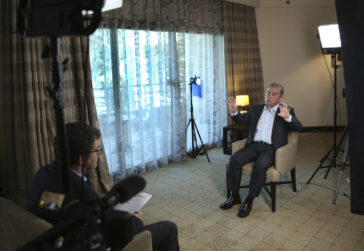Best of the Week — First Winner
Meticulous planning, near-flawless execution put AP ahead of the pack on Prince Philip coverage
The AP team in London had been preparing its coverage of Prince Philip’s death for years to ensure when the moment came, everyone would be ready. That exceptional planning laid the foundation for lightning handling and a major win when Philip passed on Friday.
The preparation included multiple revisions of the main obituaries, filing plans for all formats and a strategy for how the newsroom and editorial support teams would communicate to customers. It all paid off on Friday when AP picked up rumors of Philip’s death. U.K. news director Susie Blann confirmed with her sources and immediately let the wider team know. When official word came via email from the palace, the all-formats coverage team of more than 25 individuals in the United Kingdom, Europe and the United States was poised for action.
From the Flash alert two minutes after the email confirmation, AP was incredibly fast with the news: text, photos, live and edited video, all tailored to customers who depend on and expect this coverage when it matters.
For exceptional, nearly flawless performance across the AP on one of the biggest stories thus far this year, Susie Blann, Martin Cleaver, Bridget Jones, Anne Marie Belgrave, Samira Becirovic, Jill Lawless, Naomi Koppel, Danica Kirka, Sarah DiLorenzo and the international royal coverage team earn AP’s Best of the Week honors.


















